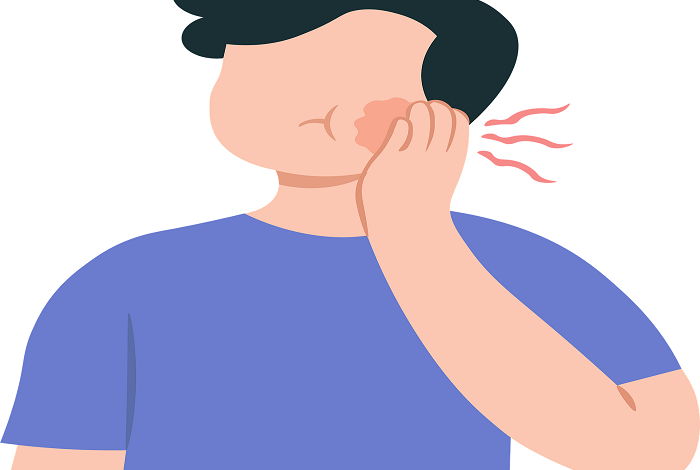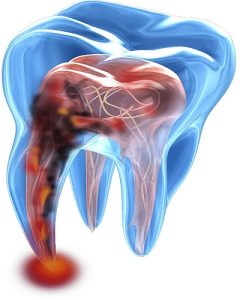
When you have a toothache, you are experiencing pain in or around your teeth. Pain from a toothache is almost always an indication that something is amiss with the tooth or the tissues that surround it. On the other hand, dental discomfort can sometimes be transferred to pain. That indicates that the discomfort is being caused by an issue in another part of your body.
Toothaches are never anything you should overlook. If the cavity that’s causing your toothache isn’t addressed, it’s just going to become worse. Although toothaches do not often pose a life-threatening risk, they are sometimes indicators of more severe illnesses that need to be treated right once by a medical professional.
Want to enquire about Invisalign Surrey? Get in touch with us today.
The Causes Of Your Toothache
When the pulp, which is located in the centre of the tooth, becomes inflamed, the result is a painful toothache. The pulp is home to nerve endings that are exceptionally sensitive to the sensation of pain. Pulpitis, also known as inflammation of the pulp, can be brought on by dental cavities, dental trauma, or an infection. The pain you’re feeling in your jaw might be causing your toothache symptoms. Finding out what the problem is is the first step to getting some relief.
Could It Be That Your Teeth Are Sensitive?
If your teeth are healthy, a tough covering of enamel will cover them from the outside to keep the nerves on the inside safe. The enamel may lose its protective properties over time. When the central layer of your tooth is exposed. The nerve endings in your teeth are susceptible to damage from anything that you consume.
Sensitivity in your teeth may be a symptom of gum disease. As the gums recede away from the teeth, the roots of the teeth become more visible. Brushing your teeth too vigorously might potentially cause harm to your gums.
You can have heightened sensitivity for the next several weeks as a result of a recent cleaning or a new filling. After whitening procedures, it may happen to a lot of individuals. It’s also possible that an old filling that’s loose or broken contributed to the problem.
Could It Be That One of Your Teeth Is Damaged?
Every time you eat, your teeth are subjected to stress and damage. They must be brushed off to remove the bacteria that adhere to them. They create acid, which is what gives cavities (the word for the holes in your enamel) its name.
You could also have a break in one of your teeth, which would expose the more sensitive inner layers. Perhaps you accidentally ate a pit from cherry or were smacked in the face while playing softball. When you bite down on anything, a cavity or crack in your tooth can create severe discomfort and make your mouth sensitive. The longer the discomfort lasts, the greater the likelihood that the damage will be permanent.
If it is deep enough, a cavity or fracture in your tooth may allow germs to enter the innermost part of your tooth, which is called the pulp. The pulp can get infected, which can result in an accumulation of pus that’s referred to as an abscess.
Additionally, the infection can extend to the tissue and bone.
Do You Occasionally Grind Your Teeth?
This is a typical condition that can be brought on by things like stress, sleep difficulties, or an issue with the bite. Grinding your teeth at night may cause the enamel on your teeth to wear away and even shatter if you do it often enough.

Is It Possible That It Is Your Wisdom Teeth?
It doesn’t matter whether you’re a newborn or an adult; teething is excruciating. When your wisdom teeth begin to break through your gums, you will most likely experience some discomfort. Food can get lodged behind the gums, which can lead to cavities and infections.
Frequent Triggers Of Toothaches.
Inflammation of the sinuses is the primary symptom of sinusitis, which can be caused by a viral, bacterial, or fungal infection that occurs inside the sinus cavity. Pain in your upper teeth might be a symptom of sinusitis since the roots of your upper teeth are located so near to your sinuses.
Rare Triggers Of Toothaches
Toothaches are often a symptom of cardiovascular disease and lung cancer. A toothache might be a precursor to a heart attack in certain people. Because of the position of your vagus nerve, conditions affecting your heart and lungs might induce dental pain. This nerve originates in your brain and travels throughout your body, connecting your brain to a variety of organs, including your heart and lungs. It travels via the gap in your jaw.
Uncommon Triggers Of Toothaches
Trigeminal neuralgia and occipital neuralgia are painful neurological disorders that cause your trigeminal and occipital nerves to become irritated or inflamed. These nerves provide sensation to the skull, face, and teeth of your body. It can seem as if the pain is coming from your teeth if they get inflamed.
Toothaches almost always need seeking medical attention. Your discomfort can be temporarily alleviated by treatment at home while you wait for your appointment with our best dentist in Surrey.
Dental Treatment
When they get a toothache, most individuals seek treatment from a dentist since the majority of toothaches are brought on by issues with the teeth. To diagnose cavities and other dental issues, your dentist will do an oral examination of your teeth in addition to taking X-rays of them. In addition, they could prescribe painkillers and medicines to treat any infections they find.
If decay is the cause of your pain, your dentist will use a drill to remove the decay from your tooth and then replace the gap left behind with dental materials. The removal of an impacted tooth could need oral surgery. If this is the case, it will be intimidated by our dental clinic in Surrey. To schedule a free consultation, get in touch with us today.